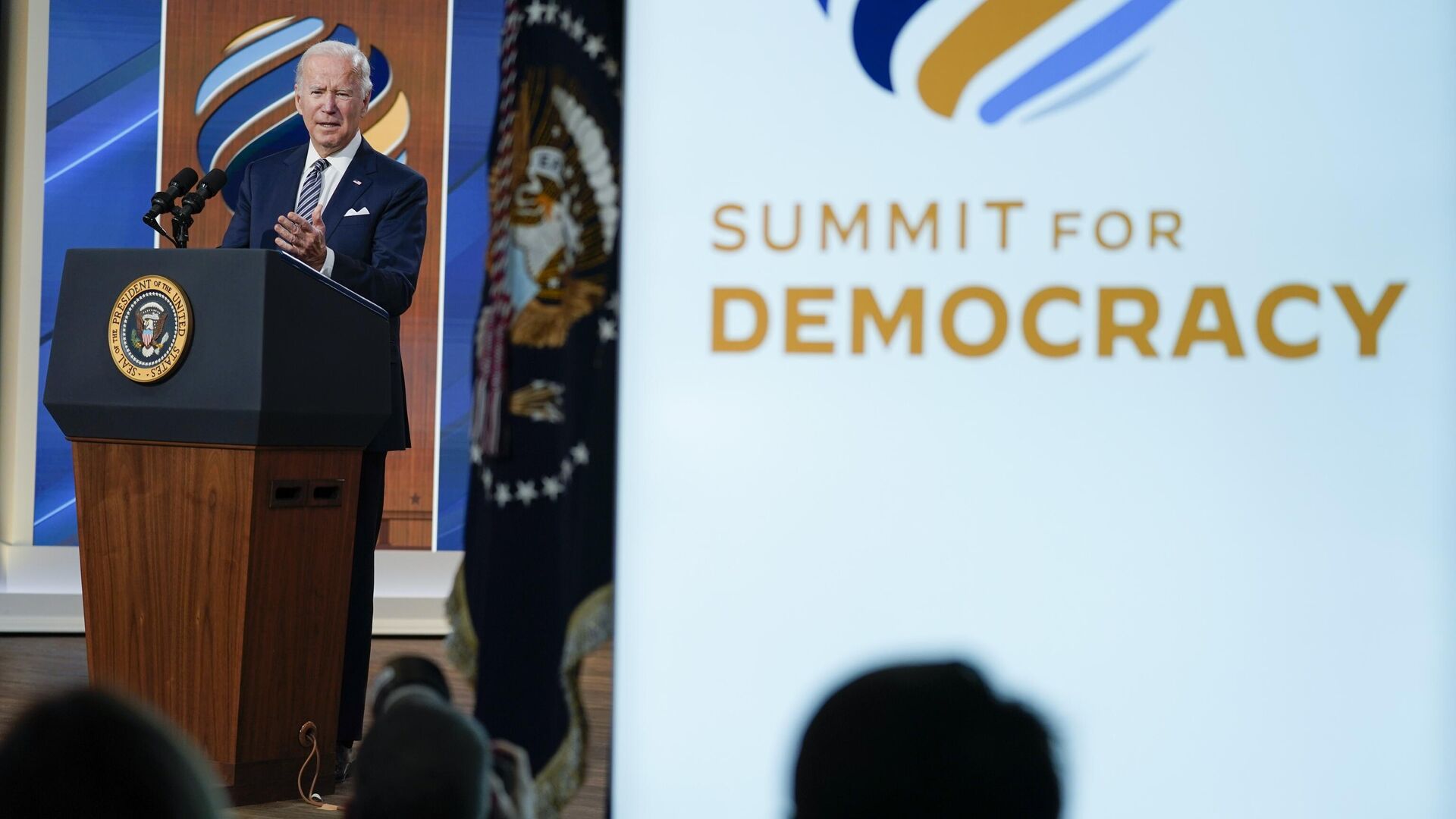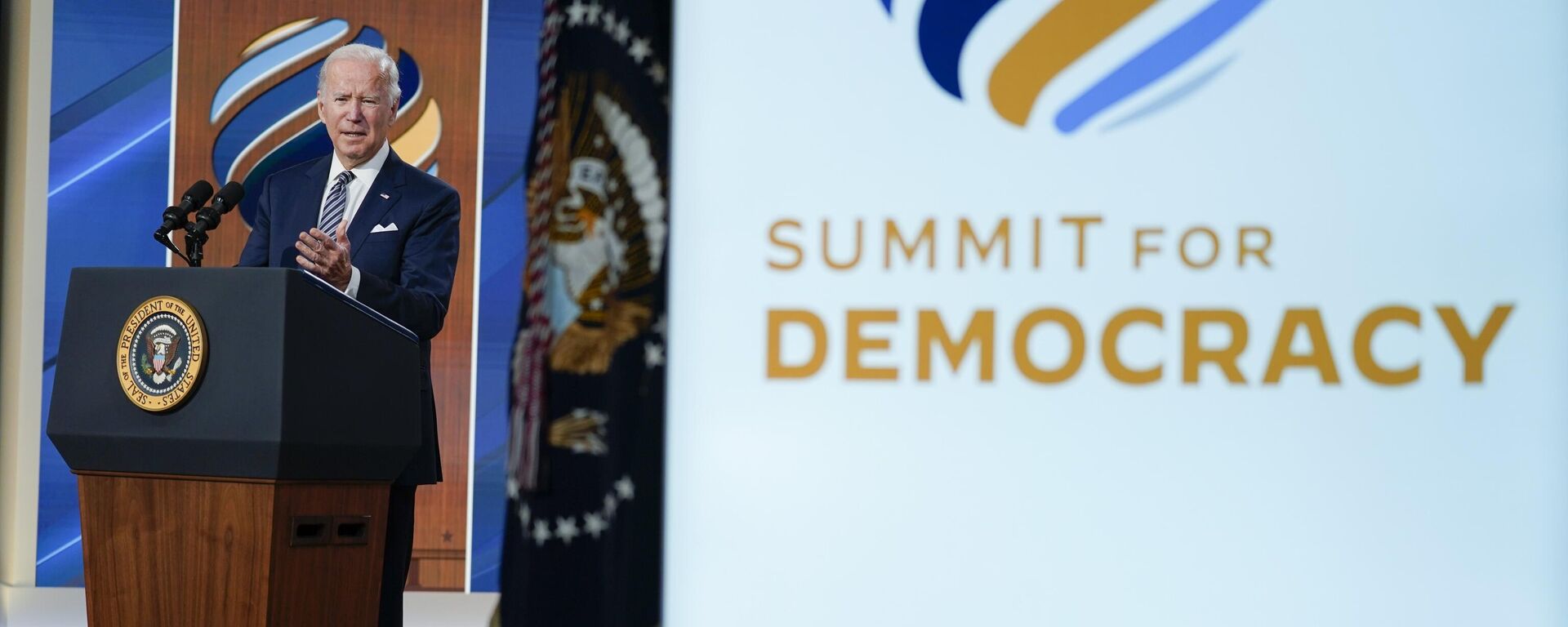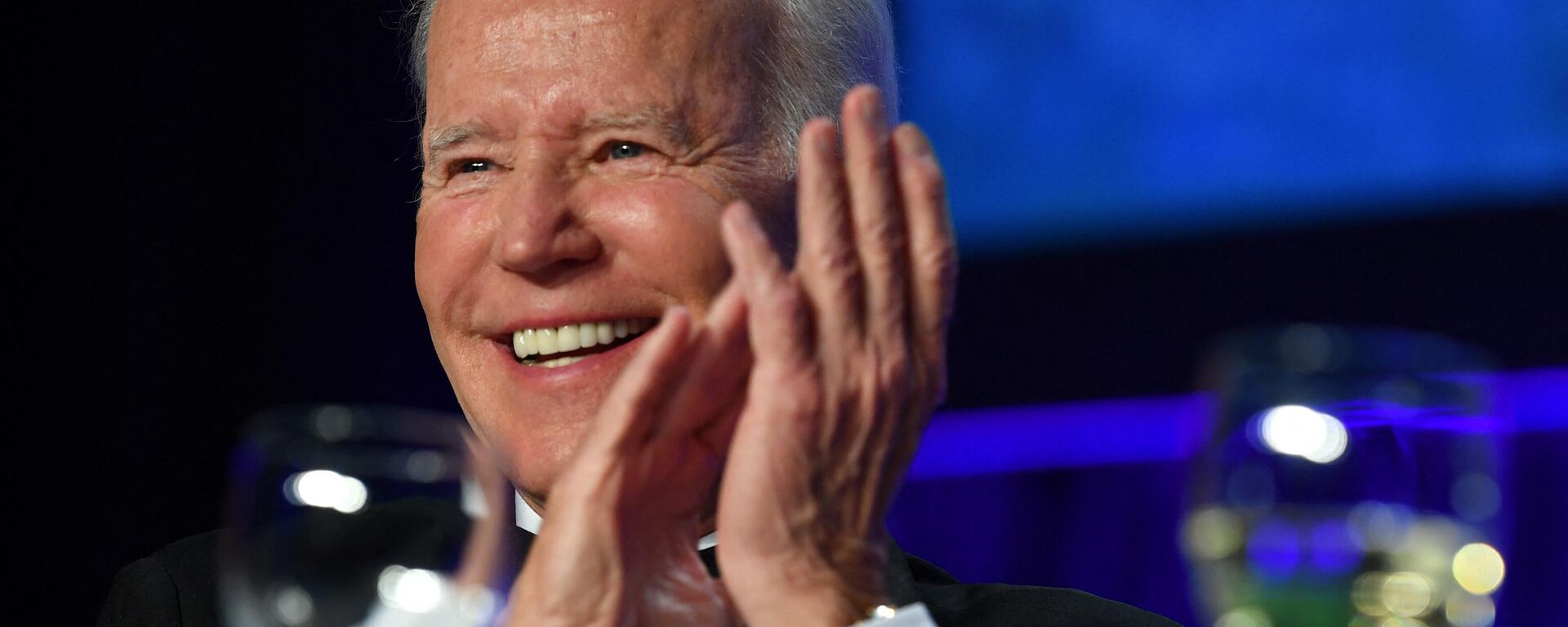Mexico, Brazil's Stance at Summit for Democracy 'Autonomous' & 'Independent'
13:48 GMT 31.03.2023 (Updated: 14:28 GMT 31.03.2023)

© AP Photo / Evan Vucci
Subscribe
The Mexican and Brazilian governments refused to endorse the condemnation of Russia's special military operation in Ukraine which was included in the declaration of the second edition of the Summit for Democracy, hosted by Washington. What does this decision of the most powerful countries of Latin America signal?
In the case of Mexico, the Latin American country signed the document, but with a reservation in which it maintained its opposition to the paragraph of the text that states that the signatory countries deplore the consequences of Russia's special military operation in Ukraine.
According to Imelda Ibanez Guzman, a specialist in Russian diplomatic history and foreign policy at the University of St. Petersburg, the decision of Mexican President Andres Manuel Lopez Obrador is part of a scenario of transformations in world politics that are taking place and that “we have been witnessing for the past year as a result of the impact of the crisis in Ukraine at the global level.”
"The foreign policy projections, especially those of the major powers, show us the extent to which these changes are taking place. On the one hand, there is this unipolarity, which intends to continue to have not only regional, but also global influence. And on the other hand, we already have the projection of the creation of a multipolar system, where foreign policies seek a balance to negotiate and cooperate under the so-called balance of interests, represented by Russia, China and other regional powers that are gradually projecting their foreign policies in an autonomous and independent manner," the academic told Sputnik.
In this sense, the expert in international affairs emphasized that in the case of Mexico, the projection of its foreign policy is autonomous, in addition to the fact that in this case it was not influenced by the United States, which forced several countries, "above all the Euro-Atlantic, Latin American or Asian countries, to impose sanctions on Russia."
On the other hand, the international analyst explained that Russia sees Mexico as a long-term strategic partner. Therefore, Lopez Obrador's foreign policy is aimed at "maintaining this balance of interests (...) with the United States, because it is also true that geopolitically we are close to US interests; but the diversification that the [Mexican president] wants to achieve (...) is to achieve the balance of interests in the bilateral relationship with Russia."
It is for this reason that the Mexican leader "stayed away from fully signing this act (...), which was intended to put symbolic pressure on Russia to withdraw its operation from Ukrainian territory," the expert said.
At the same time, also as an academic at the National Autonomous University of Mexico (UNAM), she recalled the position of the President of Mexico on democracy as a form of government and, in particular, on respect for autonomy in making decisions that have to do with internal policies, as well as respect for the principle of non-interference.
In the case of Brazil, President Luiz Inacio Lula da Silva refused to sign the declaration because he disagreed with the use of the Democracy Summit to condemn Russia's actions.
In addition, the Brazilian president noted that the United Nations (UN) is the ideal organization for discussing the conflict between Ukraine and Russia.
In this regard, Guzman considered that the president of the South American giant returned to transform his country after being under the influence of the now former president Jair Bolsonaro and, therefore, is now oriented to a different type of foreign policy.
"Regionally, a decision can be made to strengthen the projection of foreign policy interests, especially on the part of Brazil, Argentina, Mexico, let's see if Colombia and Venezuela, of course. Obviously, the United States is going to try to have influence in Latin America and it will try to do it in every way, it is doing it, the Summit for Democracy is simply a mechanism to project its unilateral foreign policy," the international politics scholar pointed out.
Given this scenario, Ibanez believes that the way the Brazilian president projects his foreign policy, like that of Andres Manuel Lopez Obrador, is autonomous and independent of US influence.
"He wants to be present throughout this ceasefire process, the call for peace, even to be part of the mediators (...) to seek peace and negotiate how this situation develops in terms of control of this crisis between Ukraine and Russia," emphasized the professor of the Faculty of Political and Social Sciences of the main public university in Mexico.



